Working post-pandemic: What employees and employers need to know
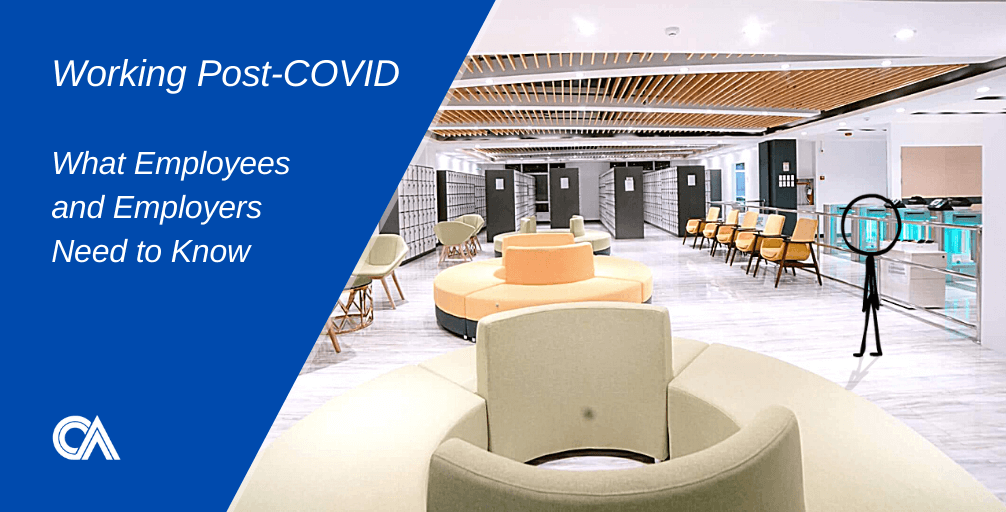
The General Community Quarantine (GCQ) for Metro Manila has been extended until June 30. This means looser restrictions and more businesses can resume operations. However, even though millions of people have returned to work on June 1st, there is still a lot of uncertainty regarding the new rules, expectations, and policies surrounding returning to work and being safe around the office and workplace.
We explore working post-pandemic and what employers and employees need to know.

Coronavirus BPO sector resources
- [STRATEGY] COVID-19 Business Recovery Action Plan
- [COVID-19 BUSINESS & LEGAL FAQ] Critical advisories & explainers for PH BPO & businesses
- [PODCAST] COVID-19 & BPO Outsourcing – Business Risk Analysis
- [PODCAST] Interview with WHO on COVID-19 & BPO Industry
- [NEWS HUB] Subscribe to OA NewsHub for all BPO industry updates: subscribe here
- Queries, comments and updates c/o: [email protected]
- Bookmark & revisit this page for further updates
- Please share with your community
What employers and employees need to know in GCQ
- Are employers liable if their employees contract COVID-19?
- Can employers force employees to go to work?
- Who pays for employees’ COVID-19 testing expenses?
- What happens if an employee is suspected to be positive for COVID-19?
- Do employers do not need to pay staff for days not worked?
- Can employers can put permanent staff on Flexible Work Arrangements (FWA)?
- Can employers put their staff on “Floating Status”?
- Can employers renegotiate lower wages for existing employees?
- Can employers terminate staff for ‘just causes’ and ‘authorized causes’ during ECQ, MECQ and GCQ?
- Can employers operate their businesses now?
- Can employers and employees accept visitors to the business?
- Are employers required to submit monthly health reports?
- Do employers still have time to pay SSS, BIR, Philhealth?
- Can businesses close down without consent or notice to employees?
- Can employers register and incorporate new businesses in GCQ?
UPDATE: 10 Things to prepare when opening your business during GCQ:
- Read the DTI and DOLE Interim Guidelines on Workplace Prevention and Control of COVID-19 very carefully.
- Call your local barangay and city hall to check if your company fulfills all LGU requirements.
- Make sure that all your staff are covered by government-mandated benefits like SSS and Philhealth.
- Make sure you’re providing a workplace that ensures one-meter social distancing between each worker.
- If you are going to do Flexible-Work Arrangement (FWA) or WFH for some/all of your staff, make sure you inform DOLE seven (7) days before the start of the FWA.
- Print the Visitor’s Health Questionnaire and have every employee visitor answer it. Submit the DOLE Work Accident/Illness Report Form every month.
- Buy an infrared thermometer and check every guest’s temperature upon entering the Office.
- Make sure you have enough free face masks, soap, and other equipment needed to keep the workplace clean and safe.
- Find a way to get the office disinfected regularly.
- Learn and follow the health protocols when faced with a suspected COVID-19 staff.
1. Are employers liable if their employees contract COVID-19?
Short answer: No. Employers are not liable for their employees contracting COVID-19, as long as they have paid for their staff’s SSS and PhilHealth.
Employers should make sure that they’re paying for their employees’ SSS and Philhealth benefits. In the event that the worker is not qualified to avail of the benefits under SSS or Philhealth due to the fault of the employer, the employer shall shoulder all the medical expenses until full recovery.
What type of health coverage under SSS and Philhealth do employees get?
Here’s a basic guide for the health coverage under SSS and Philhealth.
2. Can employers force employees to go to work?
Short answer: No. Employers cannot force employees to go to work if the company can’t provide shuttle service.
DOLE Secretary Silvestre Bello stated on May 23 that if companies cannot provide employees with shuttle service, employers cannot force them to report to work. However, employees may be subjected to the no-work, no-pay policy. Equally, DOLE has stated that private firms are not obliged to provide shuttle services for their staff.
3. Who pays for employees’ COVID-19 testing expenses?
Short answer: Employers must pay for employees’ COVID-19 testing expenses. However, employees are not mandated to take COVID-19 testing to go back to work.
According to the Department of Labor and Employment’s Labor Advisory No. 18, employers shall shoulder the cost of their employees’ COVID-19 prevention and control measures, such as testing, disinfection facilities, hand sanitizers, personal protective equipment (PPEs, including face masks), signages, proper orientation and training of workers regarding COVID-19 prevention and control. (See below.)
Further, it should be noted that whether the COVID-19 testing was mandatory or not depends on the local government unit. Here are some cities that require COVID-19 testing for employees before going back to work:
- Paranaque at employer’s expense
- Caloocan at employer’s expense
- Marikina but at city’s expense
On May 15, Marikina City has tested an initial 1,000 private employees scheduled to return to work when Metro Manila shifted to a Modified Enhanced Community Quarantine (MECQ)
For other Metro Manila cities such as San Juan and Quezon City, COVID-19 testing is not mandatory but “highly encouraged.”
4. What happens if an employee is suspected to be positive for COVID-19?
Short answer: Employers are required to send any employees home for 14 days of self-quarantine if one of them is suspected to be positive for COVID-19.
If a worker is suspected of having COVID-19, the workplace must be decontaminated. Employees present in the work area with the suspected COVID-19 positive co-worker will be required to go on a 14-day home quarantine if the suspect tested positive. If tested negative, employees can go back to work the next day.
The suspected employee, on the other hand, will be asked to proceed to the isolation area designed in the workplace while waiting to be transported to the nearest hospital.
5. Do employers do not need to pay staff for days not worked?
Short answer: No. Employers do not need to pay staff for days not worked (aka no-work, no-pay). However, they are encouraged to exercise flexibility and compassion.
Pursuant to the Labor Advisory No. 4, Series of 2020 – Guidelines on 2019 Novela Coronavirus 2019 Prevention and Control at the Workplace, an employee who was ordered to stay at home or requested to self-quarantine can use their annual vacation/sick leave credits, if there’s any. If they’re all used up, employees can take a leave of absence without pay. Further, the two parties can work on an agreement or other arrangement for the worker’s leave of absence.
6. Can employers can put permanent staff on Flexible Work Arrangements (FWA)?
Short answer: Yes. Employers can put staff on Flexible Work Arrangements (FWA) provided that they inform DOLE Seven (7) Days Prior
In fact, DOLE prefers that employers put their staff on FWA arrangements instead of terminating them completely. For companies adopting the FWA, fill up the 1) Establishment Report on COVID-19 and 2) Report on the Adoption of Flexible Work Arrangements During Economic Difficulties and National Emergencies. Email a copy to your local DOLE office as soon as possible, and submit two hard copies to the closest DOLE Office which has jurisdiction over the workplace as soon as ECQ lifts.
7. Can employers put their staff on “Floating Status”?
Short answer: Employers can put their staff on “Floating Status” – under certain conditions
At the end of a contract or Service Agreement, employees have the option to wait for three months to resign or transfer to another contractor/employer. Pursuant to Section 13 Department Order No. 174, failure of the employer to provide new employment to the employee shall entitle the latter of payment or separation benefits as may be provided by law or the Service Agreement, whichever is higher.
8. Can employers renegotiate lower wages for existing employees?
Short answer: Yes. Employers can legally negotiate for lower wages and wage-related benefits with employees for a limited time
If the company really needs to tighten its belt without wanting to lay off employees, employers can legally negotiate to temporarily adjust employees’ wage and benefits for six months. Further, the agreement can be renewed after such period.
9. Can employers terminate staff for ‘just causes’ and ‘authorized causes’ during ECQ, MECQ and GCQ?
Short answer: Yes. Employers can legally terminate and lay-off staff for ‘just causes’ and ‘authorized causes’ even during ECQ, MECQ and GCQ.
The current pandemic, and the lockdowns that come with it, will not protect employees from being laid-off due to serious offences. As long as the company follows the due process of termination, employees can be fired due to Just and Authorized Causes.
Both Just and Authorized Causes of termination are allowed during ECQ, under the following conditions:
- Just Causes: There must be a valid offence, Twin notice rule and proper due process are followed.
- Authorized Causes: Company has reported to DOLE that they will cut people, 30 days notice, and payment of severance pay. Severance pay as follows: (1) One-half month pay per year of service for retrenchment, closure of operation, or when the employee is suffering from a disease not curable within six months. (2) One-month pay per year of service for installation by the employer of labor-saving devices, redundancy, or impossible reinstatement of the employee
It should be noted that while employees have the right to refuse to go to work, employers may also legally terminate employees who do so under Just Cause of Termination (Serious Misconduct or Willful Disobedience).
10. Can employers operate their businesses now?
Short answer: Yes. Employers can now operate provided they follow the DTI and DOH Health Guidelines.
More sectors are allowed to resume operations, but safety precautions and health standards shall still be observed pursuant to the Department of Trade and Industry (DTI) and Department of Labor and Employment (DOLE) Interim Guidelines on Workplace Prevention and Control of COVID-19 dated April 30, 2020;
Department Order No. 35 Series of 2020 dated May 4, 2020 on Construction Safety Guidelines for the Implementation of All DPWH Infrastructure Projects During the COVID-19 Public Health Crisis and Department Memorandum No. 2020-0220 dated May 11, 2020 on Interim Guidelines on the Return-To-Work issued by the Department of Health (DOH).
Telecommuting work arrangements like the work-from-home arrangement, as well as other alternative work schemes, are still highly encouraged.
Further, to protect everyone in the workplace and to ensure control of the virus, the DTI and DOLE have released an Interim Guideline Workplace Prevention and Control of COVID. The guidelines emphasized that the employer and employee have a duty to keep each other safe from the COVID-19 virus.
Moreover, employees cannot refuse to go to work and claim that they’re scared for their lives. In these circumstances, DOLE will have to determine if the workplace is indeed dangerous. If it is, they’ll issue a Work Stoppage Order to suspend operations.
If a business is not given the Work Stoppage Order by DOLE, employees will be required to go to work when asked. Employers have the right to issue warnings and sanctions for employees who refuse to come to work.
11. Can employers and employees accept visitors to the business?
Short answer: Yes. If necessary, companies may accept establishment visitors
Prolonged face-to-face interactions are completely discouraged. However, if truly necessary, companies may accept establishment visitors for essential concerns. To ensure safety and tracing, the visitors will be required to accomplish the ‘Visitor’s Health Checklist Form’ which can be accessed at DOLE’s Facebook page and official website.
12. Are employers required to submit monthly health reports?
Short answer: Yes. Employers are required by DOLE to generate and submit a monthly health report
Every employee will be required to accomplish the daily health symptoms form, undergo temperature check, and have them recorded in the health symptoms questionnaire. The employer must then submit the monthly reporting of illness, diseases, and injuries utilizing the DOLE Work Accident/illness Report Form (WAIR) to DOLE’s Regional Office.
13. Do employers still have time to pay SSS, BIR, Philhealth?
Short answer: Yes. Employers still have time to pay SSS, BIR, Philhealth and must catch up on their contributions.
Social Security System (SSS)
The contribution deadline for all regular employers from February to April 2020 will be extended until June 15.
Bureau of Internal Revenue (BIR)
BIR’s Memorandum Circular No. 48-2020 extends the filing of returns and payment of taxes (including Amnesty Tax) until June 14.
Until June 14, concerned taxpayers may: file the tax return and pay the internal revenue taxes at the nearest Authorized Agent Banks (AABs), notwithstanding Revenue District Office (RDO) jurisdiction; or file the tax return and pay the corresponding tax due thereon to the concerned Revenue Collection Officers (RCOs) of the nearest RDO, even in areas where there are AABs.
Philhealth
February to April Philhealth contributions was extended until May 31 only. Going further, all premium contributions of employers and their employees in the Government and Private sectors shall be made through the online payment facility of the Electronic Premium Remittance System (EPRS).
14. Can businesses close down without consent or notice to employees?
Short answer: Yes. Businesses can legally close down without the consent of the employees
In closing a business, companies need to follow the due process. The following must be done in order to legally close a business in the Philippines:
a. Employees must be properly terminated to avoid issues on illegal dismissal.
All employees shall be properly terminated, and the Notice of closure and termination must be given to the employee and the Department of Labor and Employment (DOLE) at least thirty (30) days before the intended date of termination. Failure to do so subjects the company to an illegal dismissal lawsuit.
Further, if the closure is not due to business losses, the corresponding separation pay must be paid to the employees.
b. The company should send a Notice of Closure to BIR, SSS, Philhealth, and Pag-ibig.
Failure to notify and/or secure clearances from these government agencies will result in the continued assessment of the company for its mandated contributions since the company will still be considered as active.
c. Inform other government agencies of your Notice of Closure
If your company has been granted a license by other government agencies such as the Philippine Export Zone Authority (PEZA) or Board of Investments (BOI), a notice of the closure must be furnished to these agencies.
d. Retirement/Closure of business with the local government, DTI, or SEC
A business starts and ends in the mayor’s office. In retiring/closing a business, the company must submit Notice of Closure and other documentary requirements to the city that issued its business permit.
Lastly, if the business is a sole proprietorship, then the closure must also be filed with the Department of Trade and Industry (DTI). Corporations, which may be shortened or dissolved, will have to file their documentation with the Securities and Exchange Commission (SEC). In total, closing a business can take about six months to one year of processing.
15. Can employers register and incorporate new businesses in GCQ?
Short answer: Yes. Employers now have an easier way to register new businesses.
DTI Central Visayas has rolled out an online portal to cater to the registration of new business names, an easier and more convenient way to register new businesses while on lockdown. Persons registering their start-up business may visit the business name registration system (BNRS) Next Gen web portal for online business name registration.
Applicants may choose payment options such as GCash and Paymaya to register. Once approved, the certificate of business name registration and official receipt will be sent to the applicant’s email.
Five million employees may lose their jobs
DOLE is estimating that up to five million employees will lose their jobs during the COVID-19 pandemic. So if you still have a job, or if your business is still operational, you are lucky. In a post-pandemic working environment, make sure to follow these strict guidelines on health, employment, and labor laws. Let’s do our part to maintain safety in the workplace. Good luck to us all.
1. Read the DTI and DOLE Interim Guidelines on Workplace Prevention and Control of COVID-19 very carefully.
This eight-page document details all the rules you need to know when operating business in the middle of GCQ, as implemented by the national government. Make sure that you’re well-aware of the rules and regulations before resuming operations. This document enumerates the duties of employers and employees to each other, and provides rules in ensuring workplace safety and health.
2. Call your local barangay and city hall to check if your company fulfills all LGU requirements.
Following the regulations of the national government is one, but fulfilling the requirements of your local government unit (LGU) is another. Every locality has its own set of rules, so make sure to stay informed and updated on the decisions made by your mayors and governors.
Some rules may not even be about resuming businesses, like issuances of travel passes and other requirements. Some cities require travel passes in addition to the certificate of employment for commuting employees, while others don’t. For the sake of your company and your employees, stay well-aware and proactive. You may directly call your local barangay or city hall to check if you’re fulfilling all your LGU’s requirements.
3. Make sure that all your staff are covered by government-mandated benefits like SSS and Philhealth.
These benefits are mandated by the law for a reason. In the event that the staff is not covered by SSS and Philhealth, the employer must “shoulder all medical services until full recovery.”
Source: Labor Advisory No. 4
4. Make sure you’re providing a workplace that ensures one-meter social distancing between each worker.
If you’ve read the above mentioned DTI and and DOLE Interim Guidelines on Workplace Prevention and Control of COVID-19, you would know that ensuring a one-meter distance between each employee is a very necessary rule to maintain safety in the workplace.
Office tables must be arranged in a way that practices distance, and prolonged face-to-face are discouraged. Further, alternative work arrangements such as shifting schedules and work-from-home are encouraged, if applicable.
Source: DTI and DOLE Interim Guidelines on Workplace Prevention and Control of COVID-19
5. If you are going to do Flexible-Work Arrangement (FWA) or WFH for some/all of your staff, make sure you inform DOLE seven (7) days before the start of the FWA.
The DOLE Labor Advisory No. 17 Series of 2020, Guidelines on Employment Preservation Upon Resumption of Business Operation, highly encourages continuing the WFH arrangement, if feasible.
If the WFH arrangement is not applicable for the company, DOLE encourages employers to consider the following flexible work arrangements:
- Compressed workweek;
- Reduction of workdays;
- Rotation of workers;
- Forced leave;
- Broken-time schedule; and
- Flexi-holidays schedule.
Source: http://bwc.dole.gov.ph/images/Issuances/DepartmentAdvisory/DA_02_09_2.pdf
If your company chooses to operate on a flexible working arrangement, you need to do the following:
- Fill out the Establishment Report on COVID-19
To submit the Establishment Report on COVID-19, you can initially do it first via email, but you have to follow it up with two (2) sets of hard copy that needs to be stamped in the DOLE offices. Do so within seven (7) days as per instruction. - Submit the form to the closest DOLE Regional Office which has jurisdiction over the workplace as soon as possible.
- Post a copy of Labor Advisory No. 9, Series of 2020 in a visible area in the workplace.
6. Print the Visitor’s Health Questionnaire and have every employee visitor answer it. Submit the DOLE Work Accident/Illness Report Form every month.
The Employer’s Work Accident/Illness Report form is a mandatory questionnaire that needs to be filled out by employees and submitted to DOLE on or before the 20th day of the month following the date of the accident or illness.
7. Check every guest’s temperature upon entering the office.
Following this rule from the DTI and DOLE Interim Guidelines on Workplace Prevention and Control of COVID-19, all employers and workers shall have their temperature checked and recorded in the health symptoms questionnaire:
All workers and visitors are subjected to a no-contact temperature scan. Here’s the protocol for temperature testing:
An employee with a temperature of 37.5°C or higher, recorded even after five minutes of rest, shall be isolated in an area identified by the company. He/she will not be allowed to enter the office premises.
8. Employers are required to provide staff with face masks, soap, and other equipment needed to keep the workplace safe. These should be free of charge.
For contractual workers, the cost of COVID-19 prevention and control measures will be charged to the principals or clients of the construction/service contractor. These control measures shall not be charged directly or indirectly to the workers.
9. Find a way to get the office disinfected regularly.
The rules require regular disinfecting of the room, the door knob and handles, and to ensure that sanitizers are available where workers pass. Make sure that you have a cleaning staff on call to regularly disinfect your office.
10. Learn and follow the health protocols when faced with a suspected COVID-19 staff.
While hopefully it wouldn’t happen, it is still important and mandatory to know the health protocols that need to be followed when faced with a suspected COVID-19 positive employee. Assign an isolation room, save DOH’s COVID hotline on your phone, and ensure the immediate decontamination of the area.
If the suspected employee tested positive, everyone who reported that day shall be placed on 14-day observation and quarantine. If negative, everyone may be allowed to go back to work.
In conclusion
Prevention is better than cure, so if you can still operate your business from home, do it. Remember that scientists still haven’t found a cure for COVID-19.Risking your employees’ lives when there are other options is just cruel.
However, if the business really needs to resume and workers need to be physically at the office, always follow the safety protocols. These rules and regulations are made for your best interest, and it’s the best thing we can do to prevent the spread of the virus. Further, always remember to maintain your distance, wear your mask, and disinfect. Good luck!



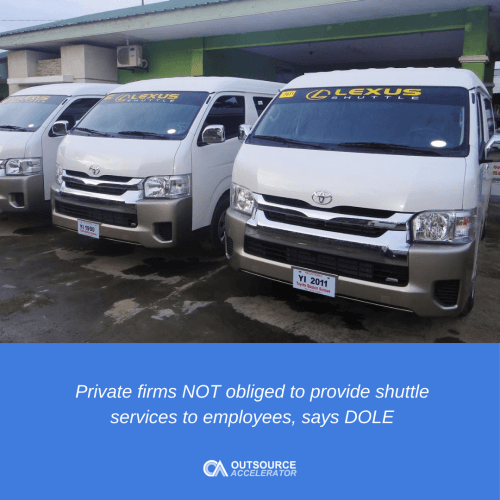
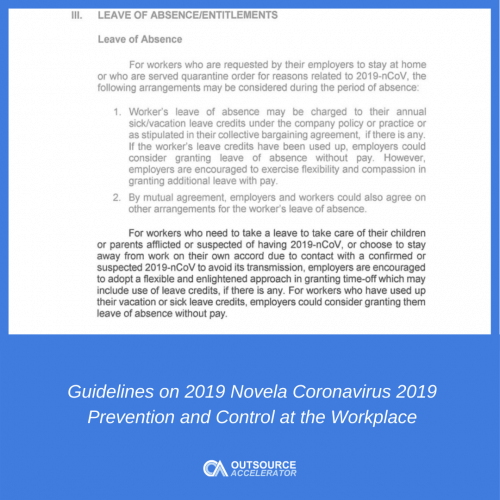
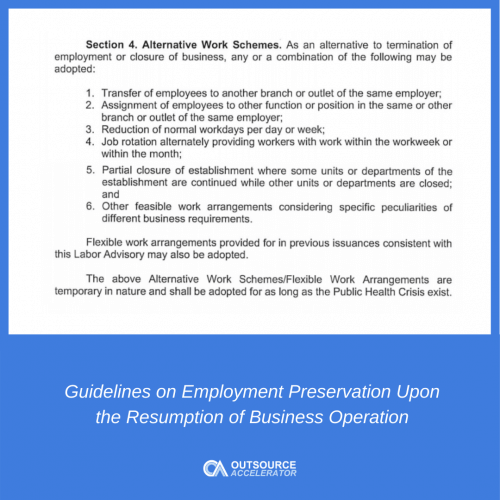
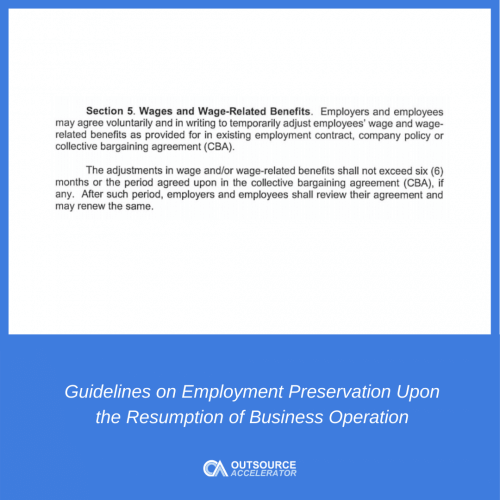
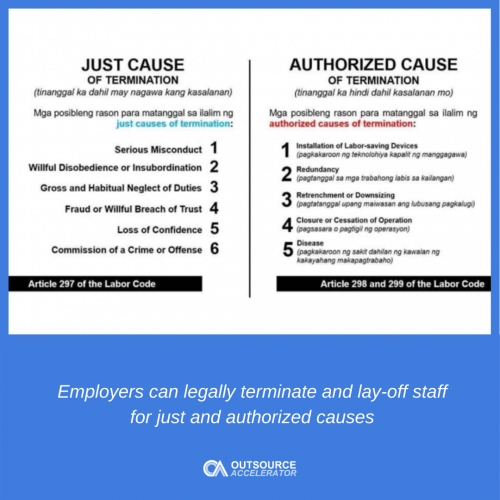
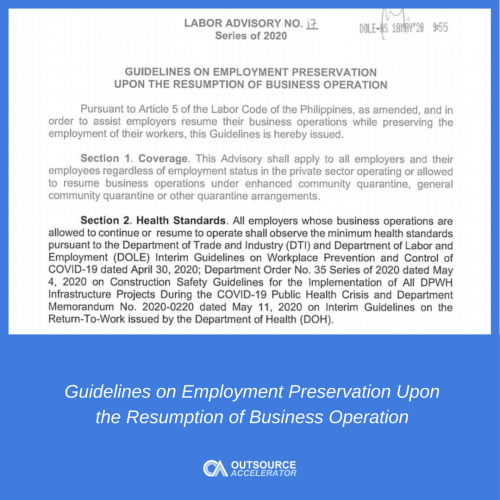






 Independent
Independent




